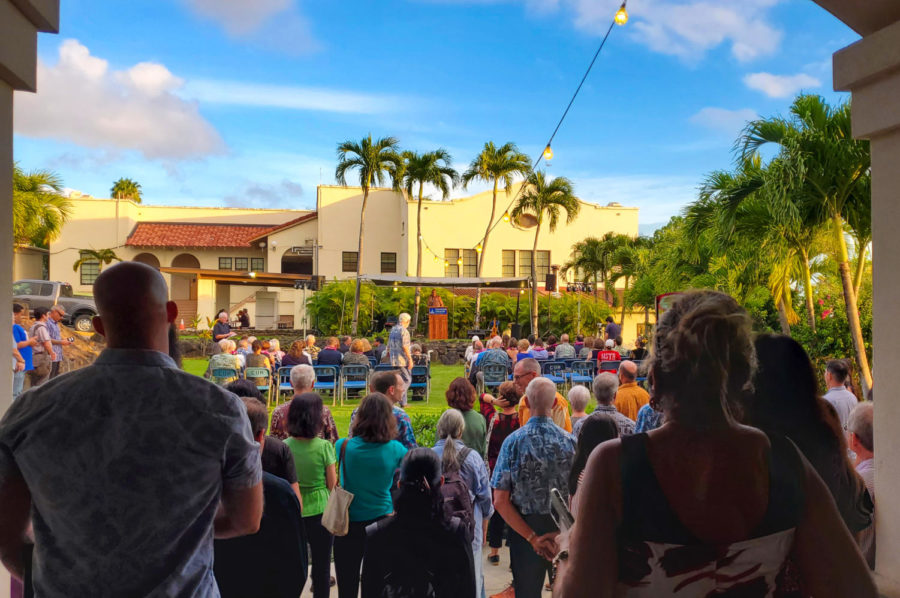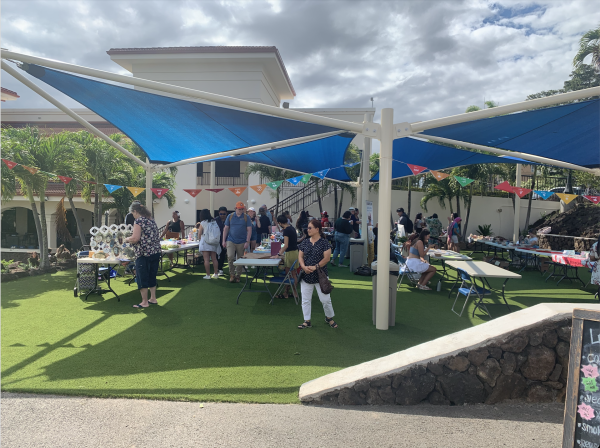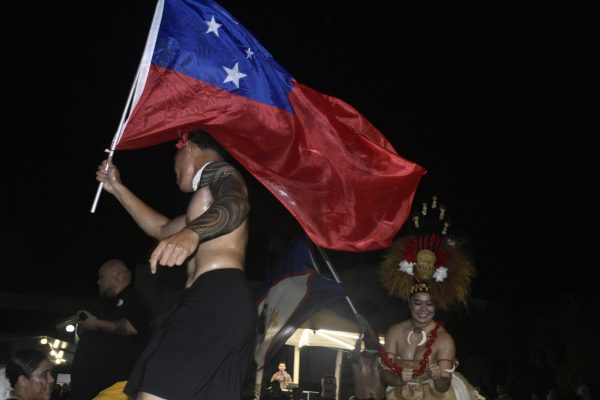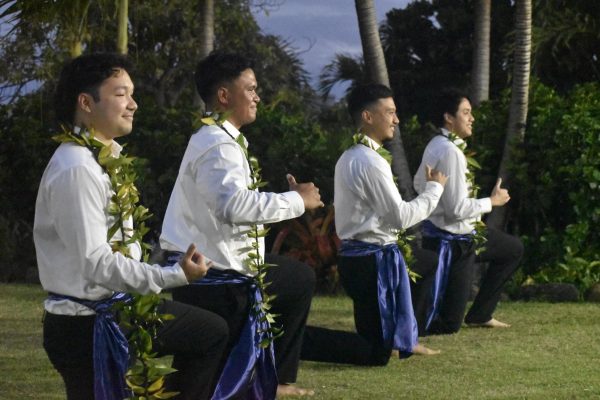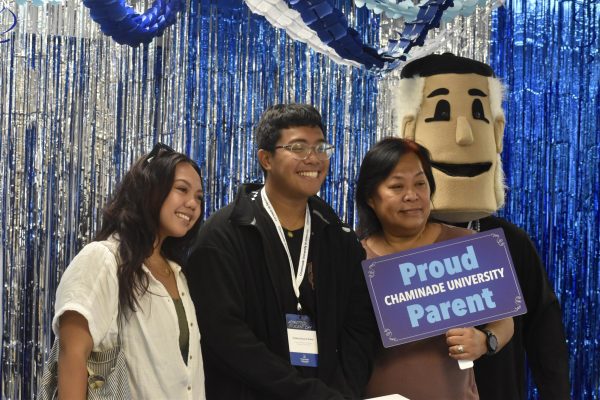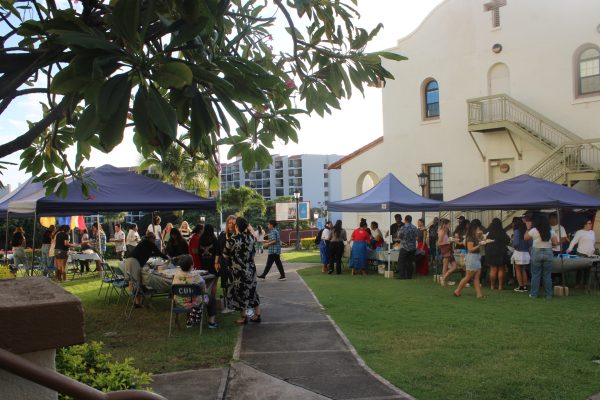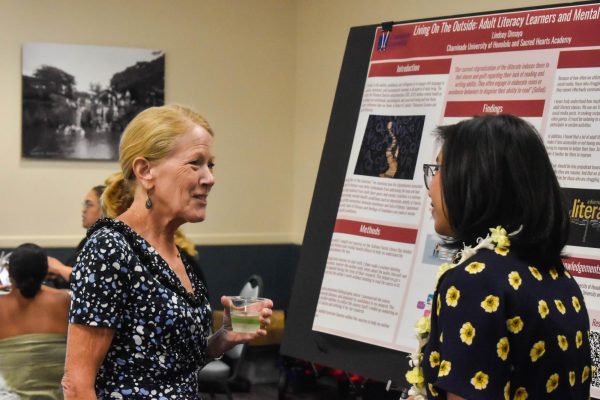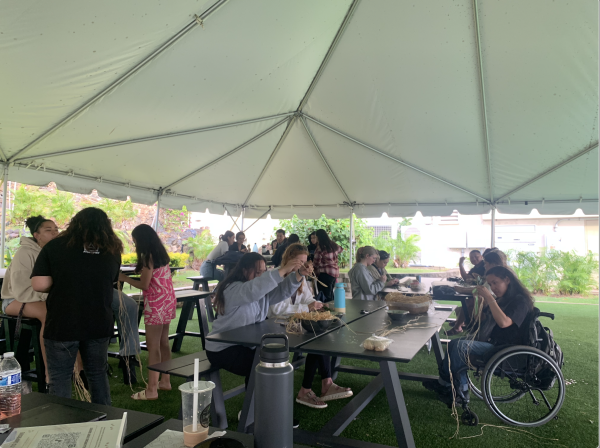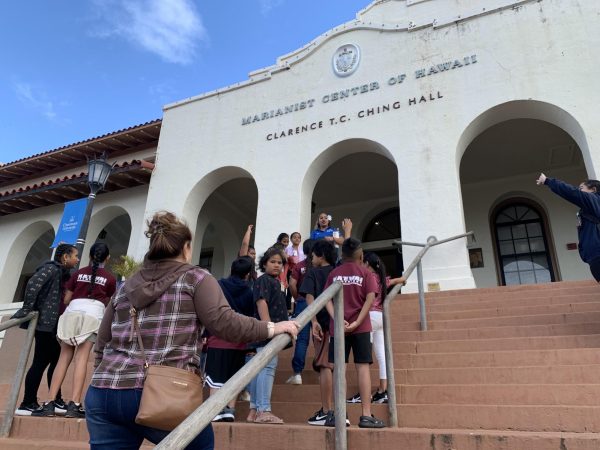CUH Hosts United Nations Meeting
Excecutive Director of the Honolulu CIFAL Center, Dr. Gail Gabrowsky was the master of ceremonies at the welcoming ceremony.
Chaminade University welcomed 19 United Nations CIFAL training center directors to the four-day XIX Steering Committee Meeting of the CIFAL Global Network on Tuesday night.
The meeting from from Tuesday to Friday will allow the directors of various CIFAL centers to discuss the United Nations 17 Sustainable Development Goals addressing issues from poverty to environmental awareness and sustainability. CIFAL centers train individuals to be involved and take action towards progressing the mission of the sustainable development goals. The meeting encourages dialogue between directors to communicate their plans and experiences and take what they have learned from each other at the conference and implement it in their centers.
“I think it [the sustainable development goals] is the most important thing humanity and mankind need to address now because it’s about the survival of our generation and future generations,” said Camilo Pizon, the excecutive director of CIFAL Miami and the dean of Universidad Técnica Particular de Loja in Ecuador. “And because there is only one planet, we need to take care of it. Here we have the opportunity to understand what everybody is doing on the whole planet, from China, Europe, the United States, and small islands. We are learning and taking this experience to teach leaders how to improve our actions towards sustainable development.”
This is the first time Chaminade has hosted the meeting since the CIFAL Honolulu Center opened at the university in April 2022 under the leadership of its executive director, Dr. Gail Gabrowsky, and chairman, Dr. Lance Askildson. Lynn Babington, the president of Chaminade University, detailed the significance of the meeting being held on campus.
“It’s a huge honor for us, particularly since we are one of the newest CIFAL Centers, to have the privilege to host this very important meeting that occurs every year,” Babington said. “As they said, there are 25 countries represented. And in today’s world, the work for United Nations CIFAL is just critical, particularly for us in Hawaii but everywhere in the world. And as a Marianist institution, we are committed to equality and justice for all people.”
Several distinguished guests were present at the welcoming ceremony, including governor-elect Josh Green, directors from 19 global CIFAL centers, and Nikhil Seth, the United Nations assistant secretary general and executive director of UNITAR.
“It’s a serious situation the world is in,” Seth said in his opening remarks speech at the opening ceremony. “Each one of us has a role in changing our future and getting us to the future we want. Each one of us has a role individually and collectively.”
As the evening came to a close, local Hawaiian food was served to guests for dinner, and several of Chaminade’s cultural clubs — including the Micronesian, Samoan, Filipino, and Hawaiian clubs, — performed their traditional dances to showcase their cultures and the diversity of Hawaii.
As the CIFAL Global Network meeting continued throughout the week, the attendees participated in discussions regarding the sustainable development goals and cultivate plans to implement practices that assist the progress of the goals.
Askildson, the provost of Chaminade University and chairman of CIFAL Honolulu, spoke about the importance of the Sustainable Development Goals and the CIFAL centers mission.
“The sustainable development goals are an implicit acknowledgment of the systemic, even existential threats that we face as a global humanity,” Askildson said during his speech at the welcoming ceremony. “And yet they are also an explicit recognition of our ability to adapt and change in response to those challenges. … As CIFAL centers, we are tasked with helping people to change their minds, their ways of thinking through education and insights for research so that they may, in turn, make change happen.”
